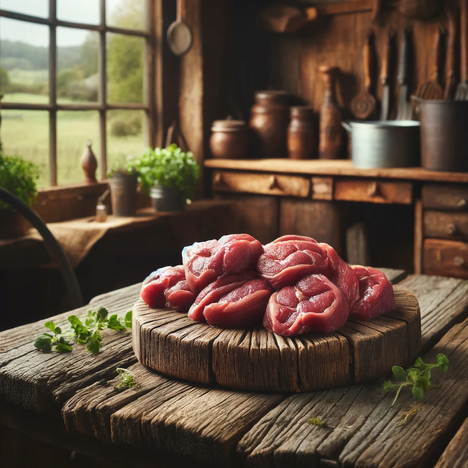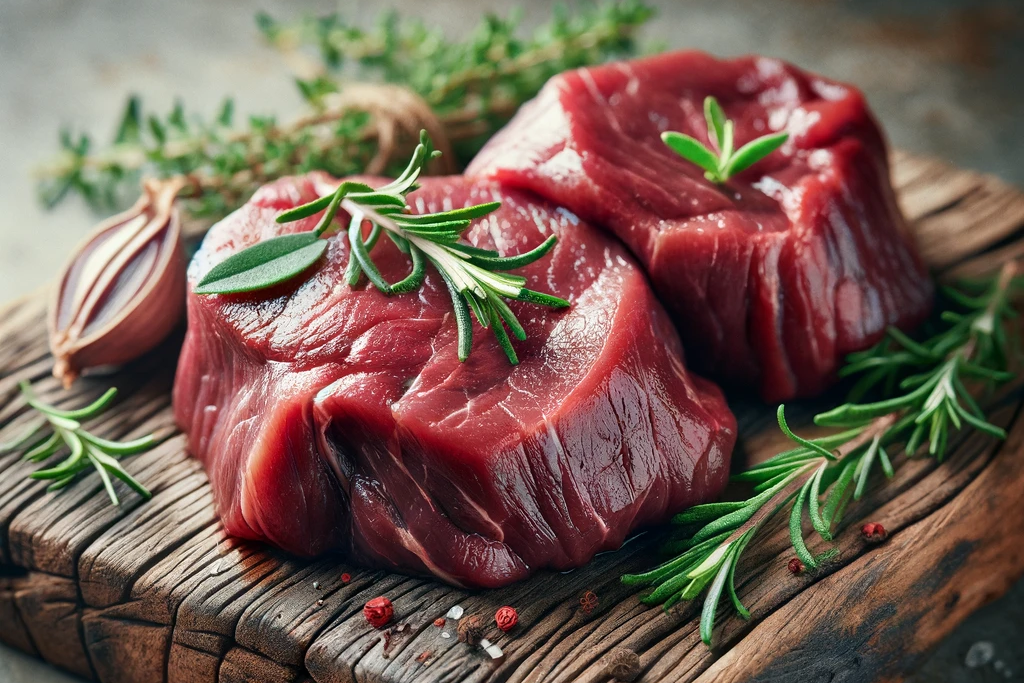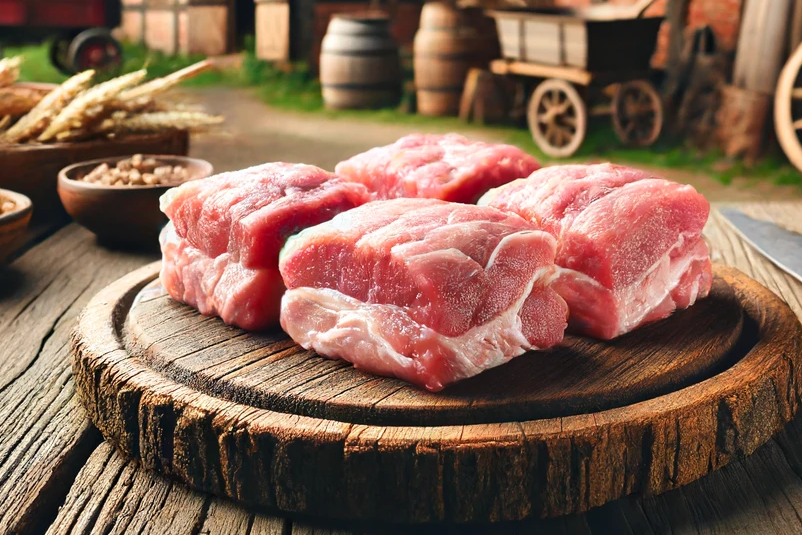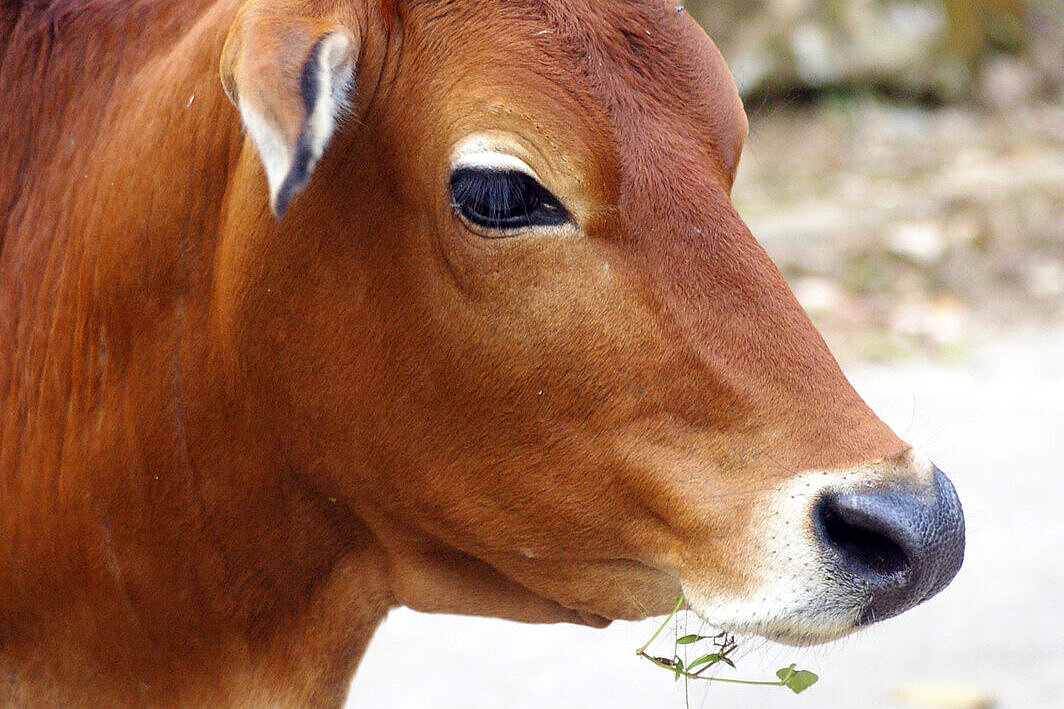Horse cheeks

In the constant search for healthy, nutritious yet tasty food options for our beloved four-legged friends, we occasionally come across unconventional but potentially enriching ingredients. Horse cheek, a lesser-known by-product of horse meat processing, could be one such culinary discovery. In this article, we take a deep dive into the world of horse cheeks as an ingredient in dog nutrition. We'll shed light on exactly what horse cheeks are, their benefits and potential drawbacks to help you make an informed assessment of whether this product deserves a place in your dog's food bowl.
What are horse cheeks?
Horse cheeks are the meat obtained from the cheek area of horses. This muscle meat is particularly tender and full of flavor, as the cheek muscles in animals are constantly in motion, just like in humans. This continuous activity results in a meat that is rich in connective tissue and therefore particularly suitable for slow braising, making it appealing to both human and animal gourmets.
Benefits of horse cheeks for dogs
High quality protein source
Horse cheeks provide an excellent source of high-quality protein, which is essential for building and maintaining muscle mass, skin and coat in dogs.
Rich in omega-3 fatty acids
Compared to other types of meat, horse cheeks contain higher amounts of omega-3 fatty acids. These essential fatty acids are known for their anti-inflammatory properties and support skin, coat and joint health.
Hypoallergenic
Horse meat, and therefore horse cheeks, are considered hypoallergenic and are often better tolerated by dogs with food allergies or sensitivities, especially to more common protein sources such as beef or chicken.
Flavor variety
Horse cheeks offer flavor variety in your dog's diet and can help prevent or overcome food cravings. The rich, deep flavor of slow-braised horse cheeks is a favorite with many dogs.
Disadvantages and considerations
Availability
Horse cheeks are not readily available everywhere, especially in regions where horse meat is less common. This can make it difficult to include regularly in your dog's diet.
Quality control
As with any meat product, the origin and processing is crucial. Horse cheeks should only be purchased from trusted sources to minimize the risk of contamination or poor quality meat.
Nutritional balance
Although horse cheeks have many beneficial properties, they should not be the only source of protein in your dog's diet. A balanced diet that includes all essential nutrients is crucial.
Horse cheeks can be an interesting and nutritious addition to your dog's diet, especially if you are looking for a high quality, hypoallergenic and tasty source of protein. However, as with any dietary change or supplement, it is important to ensure the quality of the product and that your dog's overall diet remains balanced.
If you notice any signs of hypersensitivity or poisoning in your dog, you should see your vet immediately. We are not a substitute for a vet, but we try to be as accurate as possible. Every dog reacts differently and we recommend you get a second opinion or consult your vet if in doubt.
Stay healthy and take good care of your four-legged friend!😊
Similar to Horse cheeks
Venison cheeks are the muscle areas on the cheeks of a deer. Due to their high connective tissue content, they are considered particularly tasty when cooked slowly. In dog nutrition, however, they...
Buffalo cheeks are, as the name suggests, the meat obtained from the cheeks of a buffalo. This muscle meat is known for its toughness, as it has a high concentration of collagen. During the slow...
Pork cheeks are exactly what the name suggests - the meat that comes from the cheeks of a pig. This cut is known for its firm meat, which, when properly prepared, can be exceptionally tender and...
Beef cheeks are part of the head meat of cattle. They consist of dark red, tender and rather lean meat that is surrounded by a thick skin. Beef cheeks are very muscular and have a high proportion of...



